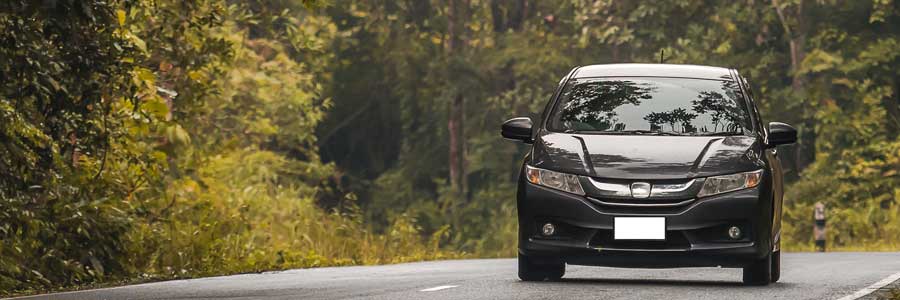
Introduction to Claiming Travel and Accommodation Expenses
If you’re self-employed and your business requires you to travel regularly, which occasionally necessitates an overnight stay, you might be eligible to reclaim some of these costs. This section will provide insights on which travel and accommodation expenses can be included in your business’s accounts. Understanding these nuances is crucial for making the most informed decisions regarding your accounting processes.
Determining the Purpose of Your Journey
Before considering any claims for travel or accommodation, it’s vital to understand why the journey was initially undertaken. Was the journey solely for business purposes, such as meeting a client or collecting your new business cards? Or was there a private element to your travel? Perhaps you stopped on your way home from a client meeting to run personal errands?
In order to determine whether you can claim for your travel, you need to establish what the primary purpose of the journey was. If it consisted of both business and private elements, it’s then important to consider whether you can separate the business part from the private part of the journey.
When Business and Pleasure Combine: Handling Mixed Use Journeys
If your journey includes both business and private elements, the way you handle the costs varies based on the circumstances. Below, we explore some common scenarios:
Business Journey with Incidental Private Use
If your journey is primarily for business, and any private use is incidental, you can include the full cost of this travel in your business accounts.
For instance, let’s consider Simon, a web designer. He travels by train from his home in Birmingham to visit a client in Brighton. While he is there, he takes a stroll by the sea. The primary purpose of Simon’s journey to Brighton is business. The private element, his walk by the sea, was incidental. Therefore, Simon can claim the full cost of his train ticket in his accounts.
Mixed Journey with Separate Uses
If your journey includes both business and private elements, and you can separate the private element, then you would include only the business cost in your accounts.
For example, Jessica is a business consultant based in Glasgow with several clients in Manchester. She travels to Manchester and stays for two nights for client meetings. She then extends her stay to three nights to attend a Premier League football match. The additional cost for the extended stay, including one night’s extra hotel bill and £50 in fees to change her train ticket, is not a business expense and therefore cannot be claimed.
Mixed Journey with No Separation Possible
If your journey is for mixed purposes and you can’t separate the business and personal elements, then you can’t claim any of the cost of that journey.
For instance, Tom runs a microbrewery. He travels to his local town to deposit his business takings at the bank and to do the weekly supermarket shopping for his family. Because that journey was for mixed purposes, and he can’t separate the cost into business and private, Tom must not include any costs for this journey in his business’s accounts.

The Specifics of Using Your Personal Car for Business
When you’re self-employed, it’s common to use your personal car for business travel. There are two primary ways to account for this:
- The simpler method involves including your business mileage in your accounts at HMRC’s approved rates. If you’ve been using this method for several years, you must continue to do so until you change your car.
- The alternative requires you to calculate your car running costs and claim a certain percentage of them in your accounts. This percentage should be based on how much you used your car for business compared to private use. Consequently, this method requires you to track the mileage of all your journeys to correctly calculate the business use percentage.
While the second method may be more time-consuming, it could result in tax savings, especially if you have a car that’s comparatively expensive to run.

Choosing Your Mode of Transport: What Costs Can You Claim?
When it comes to claiming travel expenses, HMRC does not require you to use the cheapest available method of transport, nor to claim only the amount that the cheapest method would have cost you. You can claim the full amount you spent on the journey.
For example, consider Elizabeth, a self-employed PR consultant working in London who travels to Edinburgh to visit a client. Several travel options are available to her: an overnight coach that costs her £35, a standard class train ticket for £90, a first class train ticket for £160, or a flight for £80. Even though the coach is the cheapest option, Elizabeth decides to fly to save time. She can claim the full £80 as it was the cost she incurred for a business journey, not restricted to only £35 just because there was a cheaper option available.
The primary issue with travel and accommodation expenses is ensuring that the only costs included in your accounts are those incurred for business travel.

The Importance of Professional Advice: When to Turn to an Accountant
Claiming for travel and accommodation expenses can be a complex process, particularly when there are mixed-purpose journeys involved. While this guide offers a comprehensive overview, it’s always advisable to seek professional advice when in doubt. An accountant can provide valuable guidance, ensure you’re compliant with HMRC rules and help you maximise your claimable expenses.
Conclusion: Streamlining Your Expense Claims
Understanding the intricacies of claiming travel and accommodation expenses is key to accurate accounting and maximising your business deductions. From determining the purpose of your journey to utilising your personal car for business, each aspect demands careful consideration. While it’s important to claim all eligible expenses, ensuring that these are strictly for business travel is vital to compliance with HMRC rules such as keeping accurate records. Whenever faced with doubt, remember, turning to an accountant for professional advice is always a prudent choice. Thus, with the right tools and guidance, you can streamline your expense claims and focus on driving your business forward.

